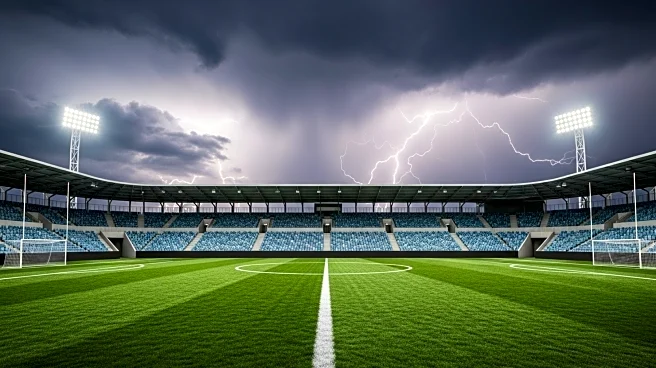What's Happening?
The college football game between Texas Tech and Oregon State experienced a significant delay due to lightning strikes in Lubbock, Texas. The game, which marks the first meeting between the two teams since 1959, was suspended in the first quarter at Jones AT&T Stadium for over two hours. The delay was caused by inclement weather, including heavy rain and lightning, which led to the evacuation of fans from their seats. The NCAA's policy mandates a halt in play if lightning is detected within six miles of the stadium, with a 30-minute delay reset for each subsequent strike. The game eventually resumed after a two-hour, 24-minute delay, with Texas Tech announcing updates via their official social media channels.
Why It's Important?
Weather-related delays in sporting events can have significant impacts on scheduling, fan experience, and team performance. For Texas Tech and Oregon State, the delay disrupted the flow of the game and could affect player readiness and strategy. Such interruptions also highlight the importance of safety protocols in sports, ensuring the well-being of players and spectators. The delay underscores the unpredictability of outdoor events and the need for contingency planning. Additionally, the resumption of the game after the delay allows for the continuation of the college football season, which is crucial for team rankings and fan engagement.
What's Next?
With the game now resumed, both teams will aim to adjust their strategies and regain momentum. The delay may have affected player focus and energy levels, requiring coaches to implement tactical changes. Fans who returned to the stadium will continue to support their teams, hoping for an exciting conclusion to the match. The outcome of the game could influence team standings and future matchups in the college football season. Weather forecasts indicate a possibility of further rain, but the teams are prepared to continue play barring additional lightning strikes.










